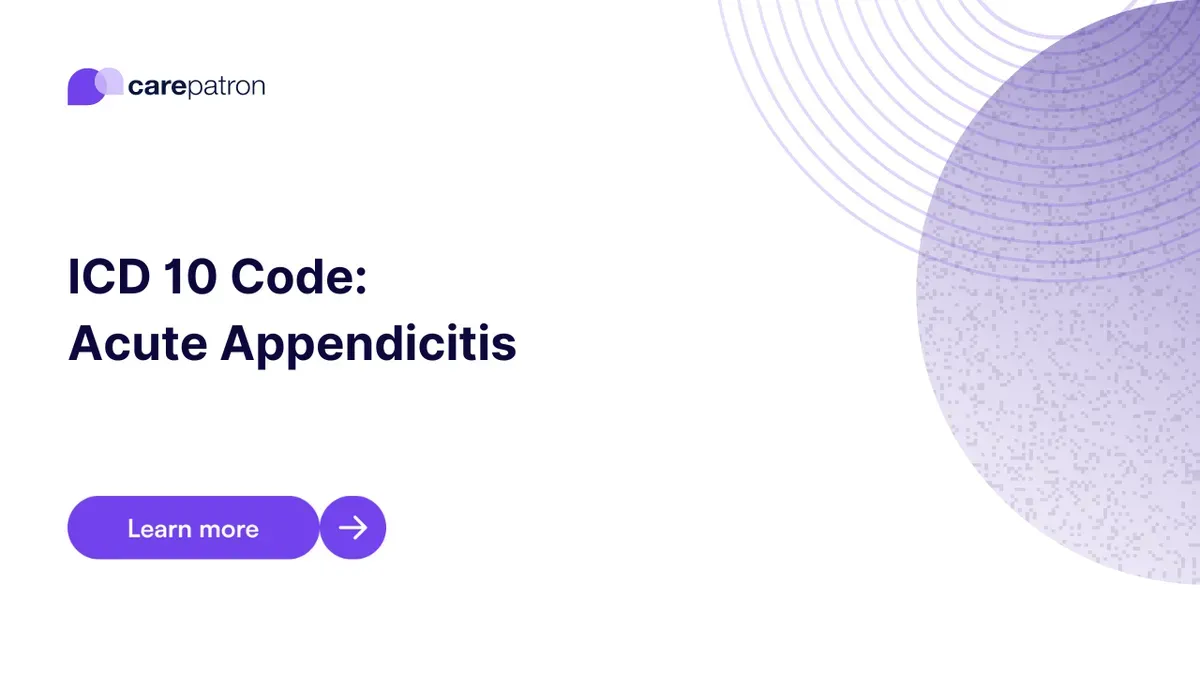
Acute Appendicitis ICD-10-CM Codes
Read this short guide and learn about acute appendicitis ICD codes you can use. Learn about billing and clinical information.
Use Code
Commonly asked questions
Yes, but we don’t recommend using those because they are invalid.
The appendix can become ruptured and result in the spread of infection. This may lead to peritonitis and death. Abscesses can also form because of appendicitis.
Appendectomies, which is the surgical removal of the appendix. This is the best way to treat it. Antibiotics will be used if there are bacterial infections and abscesses.
EHR and practice management software
Get started for free
*No credit card required
Free
$0/usd
Unlimited clients
Telehealth
1GB of storage
Client portal text
Automated billing and online payments
